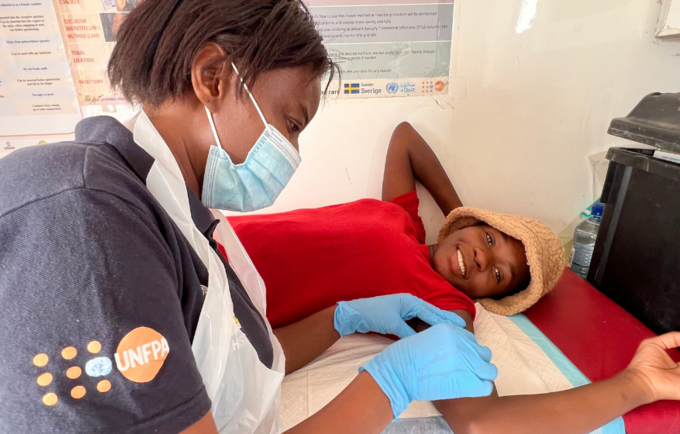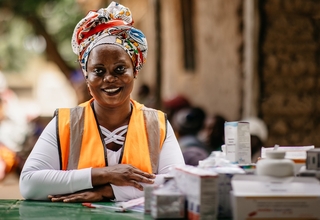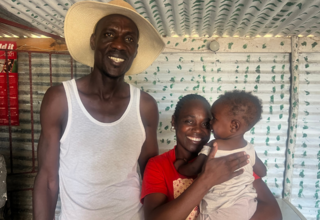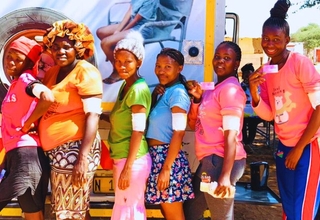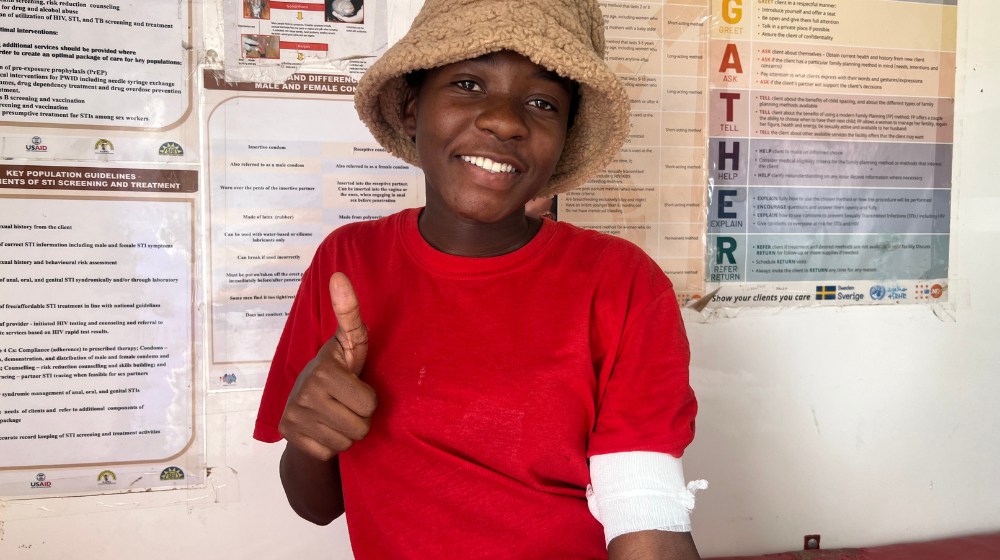
OMUTHIYA, Namibia - "The contraceptive implant is the right method for me. For the next three years, I don't need to worry about transportation fees to reach a health facility every two to three months for injections or pills. Now, I have other things to focus on, especially completing my high school," said 18-year-old Lydia Shithigona.
Lydia, a resident of Omutsegwonime village in Omuthiya, recently took charge of her reproductive health by availing herself of contraceptive implants during the United Nations Population Fund (UNFPA) and Society for Family Health (SFH) mobile health clinic visit on 6 November 2023. This marked a crucial moment for Lydia as she made an informed decision about her reproductive well-being for the first time.
The mobile clinic not only provided Lydia with contraceptive implants free of charge but also offered valuable information on protecting herself from sexually transmitted infections (STIs) and HIV. The comprehensive approach of the UNFPA and SFH’s mobile clinics ensures that adolescents and young people like Lydia not only have access to vital sexual and reproductive health services but are also educated about preventive measures.
This was my first time getting a contraceptive implant, and I am thankful to UNFPA and SFH for making it accessible.
"This was my first time getting a contraceptive implant, and I am thankful to UNFPA and SFH for making it accessible. The information on protecting myself from STIs and HIV is empowering," she remarked.
In Namibia, the use of contraceptives among young people aged 15-19 is relatively low at 24%, while the teenage pregnancy rate remains high at 19%.
The UNFPA and SFH's commitment to reaching underserved communities and providing essential reproductive health services is making a tangible difference in the lives of adolescents and young people. By combining accessibility, education, and free services, the mobile clinic aims to break down barriers and ensure that every individual has the opportunity to make informed choices about their reproductive health.
Between January and September 2023, UNFPA and SFH reached nearly 24,000 people with essential sexual and reproductive health information and care.
